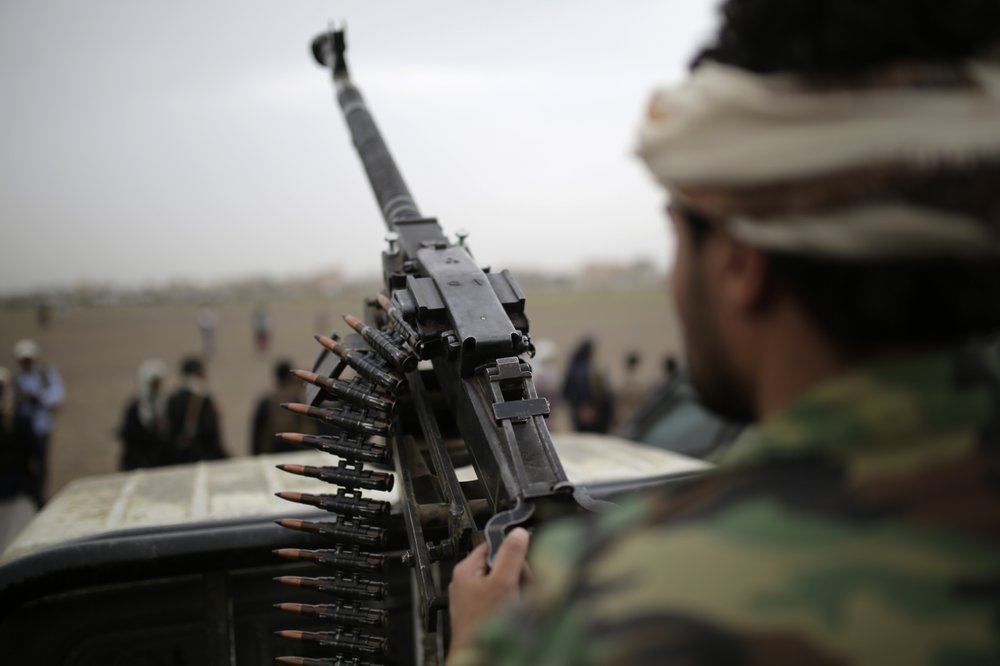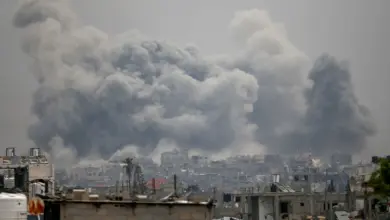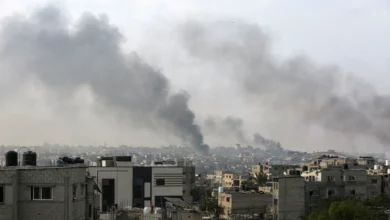For a while, we've been hearing newspaper and television commentators speak, in their usual ominous tones, about various intrigues to subvert the revolution and bring Egypt down to its knees. In their view of the world, Egypt is very much umm al-dounia: a nexus for world affairs upon which the fate of the very universe hangs. This must be why so many seem to be involved in the plot (or plots, or the master-plot to rule them all) against Egypt.
It's the usual stuff, you know. The American-Israeli-Iranian plan to divide the country into a Bedouin Sinai, Muslim Lower Egypt, Coptic Upper Egypt and a new Nubia further south. The remnants of the Mubarak regime are emerging from the shadows to cause sectarian strife. Saudi Arabia and Qatar are financing Salafist groups to prevent the return of the halcyon days of Gamal Abdel Nasser and his muscular vision of Egypt's regional role.
The generals on the Supreme Council of the Armed Forces (SCAF) are either fighting the good fight in these shadow wars or have been infiltrated – no one seems to know for sure. But speak of this only in the vaguest and most evasive of tones, in case they're listening.
Secularists' ideas for a civic state are undermining religion, and their criticism of Islamists make them infidels anyway, as a senior Muslim Brother recently implied. This of course led some secularists to wonder whether, to subvert the plot of an Islamist-military alliance they see everywhere, they might not approach the generals with a better deal.
And don't forget about the economy. The IMF and the World Bank offer money (that the government asked for) to help with the transition and it gets accused of carrying out a dastardly neo-liberal plan to impose economic serfdom, just as they had under Mubarak, in case you hadn't noticed.
I could go on with more examples, but you pick your poison. These days, everyone has a theory about how everyone else is trying to pull a fast one on the country. As a former military man recently told me, knowingly tapping his nose with his forefinger as he leaned in towards me conspiratorially, "something smells fishy." Who or what smelled fishy he could not tell me, nor could he reveal what possible plot he feared. But something is amiss.
I do not dismiss the idea that many are plotting for advantage during this transition period, which is perhaps the most exhilaratingly uncertain moment that Egypt has gone through in half a century. So much rests on the outcome of this transition, from the memory of the victims of the previous regime to the promise of a real democracy emerging out of its rotting carcass. So much time and so many opportunities have been wasted already, and so much still stands in the way of success. But the situation is far from hopeless.
Of course the United States, Israel, Saudi Arabia, Qatar and the European states are trying to influence the course of events post-revolution: it's what states with major stakes in the outcome do.
Of course Islamists and secularists and nationalists and liberals and socialists are vying for advantage and will occasionally act underhandedly or slander their opponents. It's what politicians do.
Of course the government and the SCAF are not telling the public the whole story about what is happening to Egypt politically, economically, diplomatically, socially, and administratively: it's what those in power do.
What is more important is what citizens do. They can sit in front of their television set and worry about the pundits laying out the multiple plots before them, and simply resign themselves to a world so filled with hostile opponents that not much can be done about it. Or they can march in the streets to ensure the revolution was not in vain, and join a political party or a movement for change.
Citizens can acknowledge that the transition period has been poorly managed, that the SCAF has shown both poor judgment and insufficient transparency about its intentions, and philosophize that a country ruled by generals since 1952 is not likely to push them back so easily. Or, as an increasing number of people are doing, you can ask for accountability and transparency and express outrage when journalists and bloggers get called in by the military prosecutor because they suggested that an institution financed by taxpayers should be accountable to the public (as the activist Hossam el-Hamalawy did recently on Mahmoud Saad's show on Tahrir TV, leading Mr Saad to hang up on him.) You can enter the debate about which should come first – parliament or a president or a constitution – and what any or all of these should look like.
Assigning blame to nebulous forces does not really help — it's a form of escapism. Sectarianism is not primarily the Salafists or NDP remnants' fault; it is a social problem with a long presence. Authoritarianism may have been tolerated or even encouraged by foreign forces who preferred a predictable Egypt to a democratic one, but it was first and foremost accepted and even supported domestically. If Egypt's economy is in shambles, it's not primarily because of the IMF's structural adjustment program; it's because of corruption, decades of mismanagement that predate structural adjustment, and an unwillingness to pay the social and political costs of a balanced budget.
And if there is a plot against Egypt, it's the plot of those who prefer to pass the buck rather than roll up their sleeves.
Issandr El Amrani is a writer on Middle Eastern affairs. He blogs at www.arabist.net.




